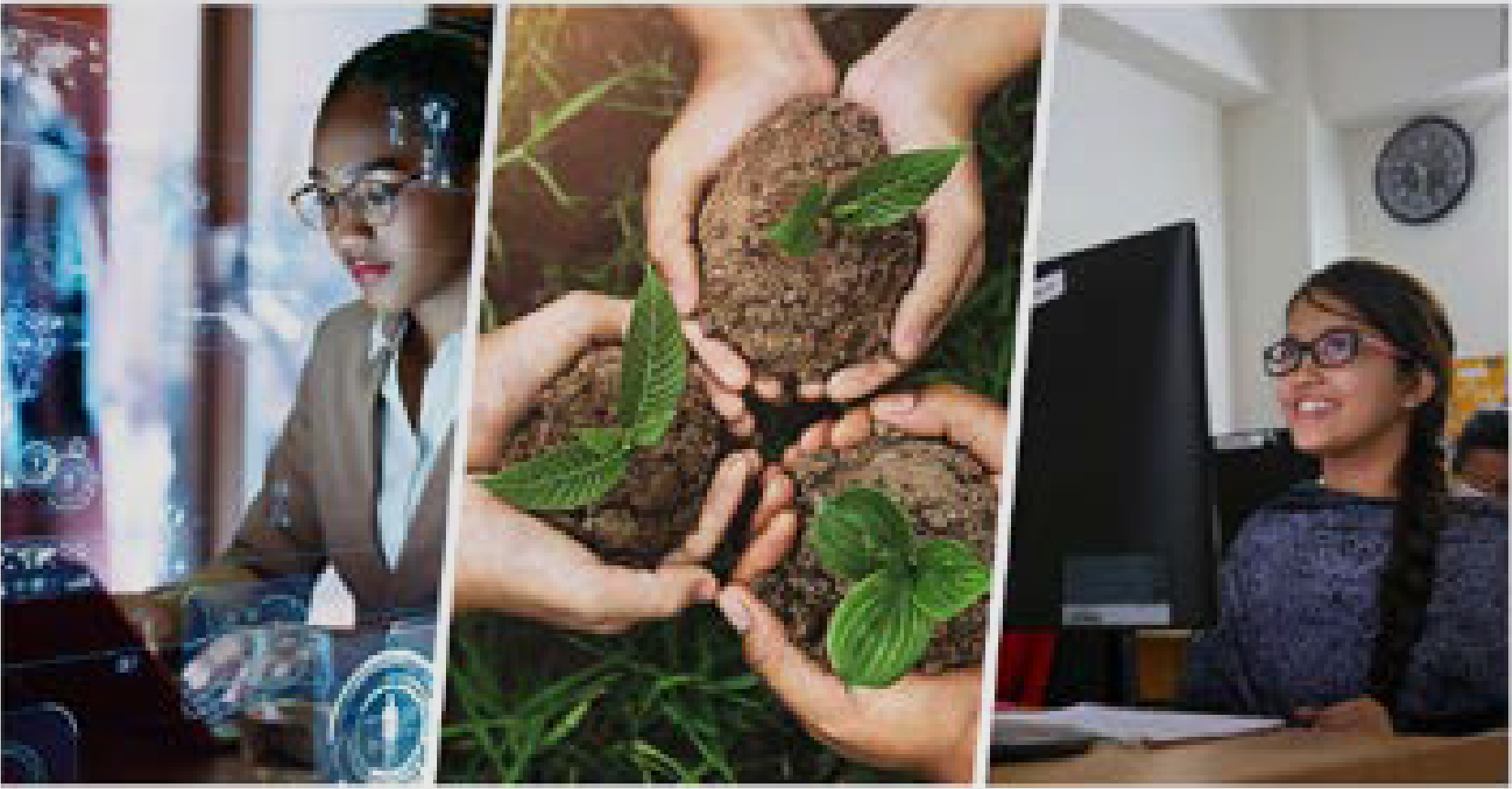
The dignitaries were greeted by Dr. K N Varalakshmi, Director - School of Sciences, Block-I, with the distinguished guest of honour being Dr. Vijayalakshmi Saxena, General President, ISCA, Kolkata. Along with delegates, research scholars and students, the conference featured dignitaries such as Dr. Raj Singh, Vice-Chancellor of JAIN (Deemed-to-be University), Dr. Geetha Bali, Former General President of ISCA, Dr. S Ramakrishna, General Secretary of ISCA, and Dr. Gangadhar, Convener of ISCA, Bangalore Chapter and Former General Secretary of ISCA, Bangalore.
Dr. Vijayalakshmi Saxena in her introductory remarks, outlined the objectives of the conference and the aims of the Indian Science Congress Association (ISCA). Dr. Saxena stated that sustainable development is not just about growth, but is also about development that serves the requirements of the present without jeopardising the future generations. Dr. Raj Singh stated that, “The sustainability of scientific advancement is directly proportionate to the social, political and economic position of a nation, and international collaborations reform scientific breakthroughs and the skills of researchers.” Dr. Geetha Bali discussed the significance of science and technology at challenging times such as the Covid-19 crisi.
In her words, “Women are capable of making significant contributions; nevertheless, bridging the digital gap might increase their participation in a variety of professions.” Mr. Amitabh Joshi, an evolutionary biologist, geneticist and professor at the Jawaharlal Nehru Centre for Advanced Scientific Research (JNCASR), discussed the relevance of evolution in understanding and overcoming many human and social problems. Various evolutionary biology-based solutions to problems such as multidrug-resistant bacteria, the dangers of genetically engineered creatures, and the effects of ageing, among others, were explored. Professor Dr. Soumitra Das, a microbiologist from the Indian Institute of Science (IISc), spoke about the molecular basis of translational regulation of viral and cell-based mRNAs in her presentation. He further discussed the many mutations found in SARs-CoV-2, the fact that the rate of mutation is related to the length of the genome, and the classification of variants.
Savitha Rajesegaran, Associate Scientific Manager - Biocon, was the guest speaker on day two and she provided excellent insights into the bioprocess of biotherapeutics. Her address highlighted the most important aspects of bioprocessing, including its impact on modern healthcare. cost, and market penetration of novel medication compounds, as well as its future prospects. Dr. Nagamani Bora, Lead and Director Biotechnology Degree Programs at the University of Nottingham, provided a comprehensive presentation on natural products and medication development and her discussion focused on the discovery of novel antibiotics in bacteria as simple as actinomycetes, which are a kind of bacterium. Dr. Bora provided an overview of her research work, describing how 16s phylogeny might be used as a guide to examine the entire genome and identify gene clusters using AntiSMASH, among other things. She took the audience through the new CRISPR/CAS9 technology, which is intended to govern gene clusters and play a role in supplying information for synthetic biology.
A large number of research experts from a number of universities around the country participated in the presentation session that was held during the conference. Subject matter experts evaluated the presentations and chose a few that stood out as particularly noteworthy.
Overall, the two-day e-conference was a great success, as evidenced by a large number of participants from various institutes across India, highly engaging scientific sessions led by eminent scientists, active audience participation during the scientific sessions, excellent research presentations made by research scholars, and positive feedback from the audience poll.
Best Presentations
- Prokaryotic Diversity in Oxygen Minimum Zones of the Arabian Sea: A Meta-Taxonomic Approach - Shruti Shah, Biological Oceanography - National Institute of Oceanography, Goa
- Microbial Pigments f rom Endophytic F u n g i I s o l ated from Bixa Orellana, Sesbania Sesba, and Passifora - Muthukruba, Department of Biotechnology - Bannari Amman Institute of Technology.
- In-Silico Approach to Predict the Potential of Bioactive Compound from Madhurakshak as Dipeptide and Peptidase-4 Inhibitor - Saptadeepa, JAIN ( D e eme d - t o - b e University), School of Sciences.
